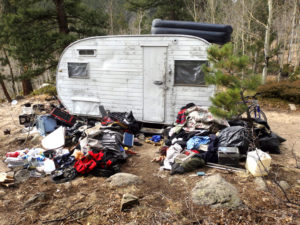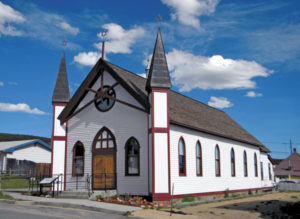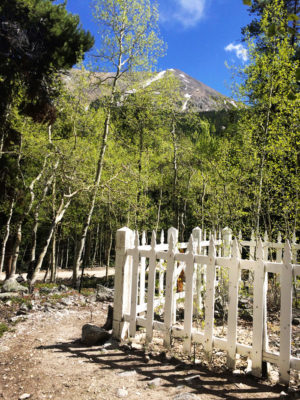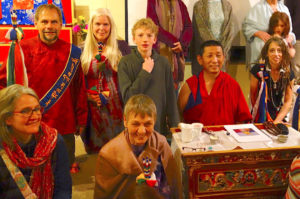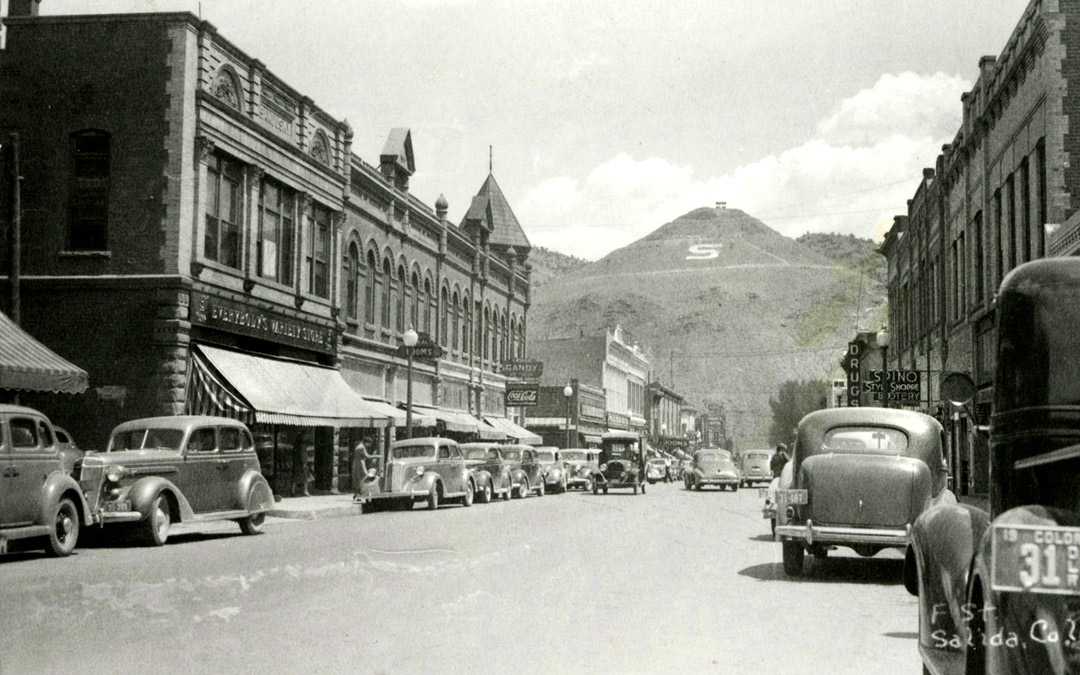
By Craig Nelson
In winter, the rocks at the bottom are what we see first,
drawing us under the scalloped patterns,
then cottonwoods
resplendent with fractured light, and lovely breezes,
and the water flows timeless past the rail yard
littered with rusted iron and coal dust from the days
when the mountains swarmed with lust
and locomotives and apparatus to tear the earth,
and along the river, the great southwest collides
with the high blue mountains,
at the bottom of a long valley, and there,
lies a river town,
where dusty alleys are broken
by a hundred years of hard living,
and history seeps into the backyards
of small, platted parcels, and clouds follow the river
and the short days are mostly warm,
the church bells don’t sound on the hour,
and the green water slides past the town,
darkening the rocks below,
and russet, volcanic hills spill out to the edge
of the bank, and downtown wakes up slowly
and cars pass by slowly,
and artists and merchants putter in their shops,
townsfolk linger in cafés and coffeehouses,
travelers rumble past on the highway
and wanderers slip in and out,
walking the busted sidewalks,
the churches gather the faithful
among Victorians and cottages,
the firs reach higher than the steeples
and haves sit at the theater by have-nots
and a great equality happens, and the town hums
horizontal and unbroken like the river,
and becomes not every town,
and stores open late, and folks move about their days
working and visiting and taking their time,
then withdrawing when the sun turns the high ridges pink, to brick homes, small, plastered living rooms,
wood smoke and the private movies of their lives,
and the river fills what needs filling and takes
what needs taking,
and when enough is empty, invites the spring
to open wide, congregating with tributaries,
roiling with dregs and snowmelt, down, down,
from the high peaks,
flushing reticent souls of winter shadows,
and burgeoning the greening, rooted ground,
and the windows of town come open
and people gather on their porches
and wave at passersby and think about their gardens,
and children fill parks and narrow streets,
the tourists stand on the bridge
and the raucous machinery of tiny yards
blares across the small blocks,
and vacationers, day-trippers, adventure seekers, paddlers, boaters and swimmers, and young couples on bicycles
amble around,
and the yellowing drone of summer returns
and all but the last of winter’s snow
departs the mountains to join the river,
and soon the long hours create fullness,
and townsfolk clasp the shiny days
of summer in their warm hands like a lover’s vow,
like an old dog’s head, like a blessing that comes
when you begin to lose your faith,
and the community comes together
like the river meets its banks, as if to praise
the bathos of their ragged mountain lives,
and then they will tell you,
this is what they want you to understand,
and they look to the river, not tired of gravity,
they see the constant flow
and the impossible chaos of illumination
and they allow that all this is what they hold
Craig Nielson writes poems and designs passive solar houses in Salida.


